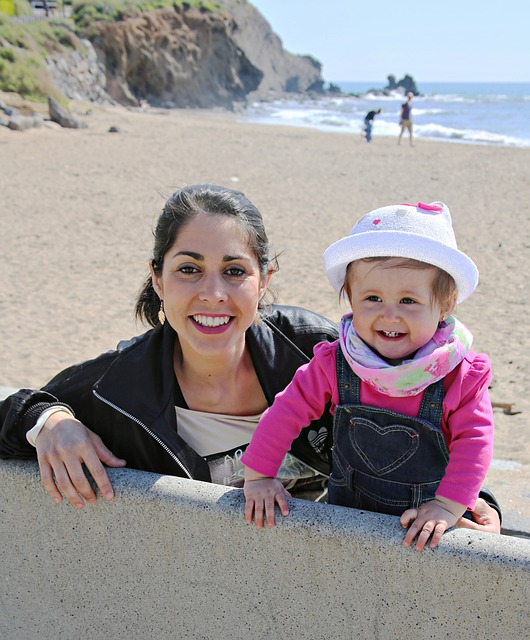In Oregon, balancing child safety and parental rights is a delicate task. This article explores the intricate landscape of parental rights protection within the state’s child welfare system, providing essential insights for both parents and advocates. We delve into the legal framework safeguarding these rights, offer practical guidance on navigating the system, and discuss common challenges and strategies for effective advocacy. Understanding your parental rights is crucial in ensuring fair hearings and a just process during child welfare proceedings.
- Understanding Parental Rights in Oregon Child Welfare Cases
- Legal Framework: The Laws Protecting Parental Rights in Oregon
- Navigating the System: How Parents Can Advocate for Their Rights
- Common Challenges and Strategies for Effective Parental Rights Protection
- Parental Rights and Child Welfare: A Guide to Due Process and Fair Hearings
- Resources and Support for Parents Advocating Their Legal Rights in Oregon
Understanding Parental Rights in Oregon Child Welfare Cases

In Oregon, understanding and protecting parental rights is a paramount concern in child welfare cases. Parents have legal rights that must be respected throughout any involvement with the Department of Human Services (DHS) or other child protection agencies. Navigating parental rights involves being aware of one’s ability to challenge decisions, receive legal advocacy, and maintain involvement in their child’s life, even during temporary foster care or adoption proceedings.
Parental rights advocacy is crucial for ensuring families are treated fairly and have a say in outcomes affecting their children. Knowing the specific rights, such as the right to counsel, access to medical records, and participation in case planning, empowers parents to actively participate in decisions about their child’s future. This process requires navigating complex legal systems, making it essential for families to be informed and supported by legal professionals dedicated to parental rights protection in Oregon child welfare cases.
Legal Framework: The Laws Protecting Parental Rights in Oregon

In Oregon, the legal framework protecting parental rights is a multifaceted system designed to balance the interests of both families and child welfare. The state has stringent laws in place that ensure parents are treated fairly during any child welfare proceedings, while also prioritizing the safety and well-being of minors. Key pieces of legislation like the Oregon Family Abuse Prevention Act (OFAPA) and the Child Welfare Act delineate the rights of parents involved with child protective services (CPS). These laws outline procedures for removal of children, placement decisions, access to legal representation, and regular review hearings, all aimed at upholding parental rights while ensuring the best interests of the child are served.
Navigating parental rights in Oregon involves understanding these legal protections and leveraging available resources, such as legal advocacy groups and court-appointed attorneys. Parental rights advocacy is crucial in ensuring that families remain together whenever possible and that any interventions are based on solid evidence and due process. This proactive approach fosters a healthier environment for both parents and children involved in child welfare cases, ultimately enhancing the chances of successful family reunification.
Navigating the System: How Parents Can Advocate for Their Rights

Navigating the complex landscape of child welfare can be daunting for parents in Oregon, but understanding their legal parental rights is a crucial step in advocating for themselves and their children. The first step is to familiarize themselves with the state’s laws regarding parental rights and involvement in foster care or adoption proceedings. Oregon has established guidelines that ensure fair treatment and protect the interests of both families and children. Parents should review these laws to comprehend their entitlements, such as the right to be informed about case decisions, participate in meetings, and maintain privacy regarding personal information.
Effective advocacy involves proactive communication with social workers, lawyers, or support groups specializing in child welfare rights. Parents can request explanations of processes, ask questions, and seek clarification on their options. They should also document important conversations and decisions to ensure transparency. Building a strong support network, whether through legal aid organizations or parent advocacy groups, can provide guidance and empower individuals to protect their rights throughout the child welfare process.
Common Challenges and Strategies for Effective Parental Rights Protection

In Oregon, as in many jurisdictions, parental rights face significant challenges within the child welfare system. One of the primary hurdles is balancing the state’s responsibility to protect children deemed vulnerable with preserving the parent-child relationship. Parents often struggle to navigate complex legal processes, ensuring their voices are heard and their rights protected during these critical times. Miscommunications, cultural barriers, and limited access to legal representation can exacerbate these issues, making it crucial for parents to advocate for themselves proactively.
Strategies for effective parental rights protection include education and awareness campaigns that inform parents about their legal rights and the child welfare process. Building strong support networks among community organizations and legal aid societies empowers parents to navigate the system with confidence. Proactive engagement with caseworkers, regular attendance at court hearings, and documentation of interactions are essential tactics. Additionally, fostering open communication channels between parents, case managers, and attorneys can help resolve conflicts and ensure parental involvement in decisions affecting their children’s welfare.
Parental Rights and Child Welfare: A Guide to Due Process and Fair Hearings

In Oregon, respecting and protecting parental rights is a cornerstone of its child welfare system. Parents have a fundamental legal right to make decisions regarding their children’s upbringing, care, and well-being. However, when concerns about a child’s safety or health arise, the state may intervene through processes like custody hearings and protective orders. Understanding one’s due process rights in these situations is crucial for effective parental advocacy.
Navigating parental rights in Oregon’s child welfare system requires familiarity with fair hearing procedures. Parents are entitled to be present at hearings, present evidence, cross-examine witnesses, and receive a written decision after the proceeding. These processes ensure that parents’ voices are heard and their rights are upheld while ensuring the best interests of the child are considered. Parental rights advocacy groups and legal aid organizations in Oregon offer valuable resources to guide parents through these complex procedures, ensuring they can actively participate in decisions affecting their family’s future.
Resources and Support for Parents Advocating Their Legal Rights in Oregon

In Oregon, parents advocating for their legal parental rights in child welfare cases have access to a range of resources and support systems. Various non-profit organizations, legal aid societies, and community groups offer pro bono services, providing guidance and representation to ensure parental rights are protected. These organizations often host workshops and webinars to educate parents on navigating the complex legal landscape surrounding child welfare.
The Oregon Department of Human Services (DHS) also plays a crucial role in assisting families. They offer resources tailored to helping parents understand their rights, including access to legal counsel, translation services for non-English speakers, and information on available financial aid. Additionally, parent support groups facilitate connections between families facing similar challenges, fostering a sense of community and shared advocacy for parental rights protection in Oregon.
